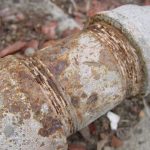When you notice water flowing into your home or dripping along walls and ceilings, it’s easy to panic and lose focus. Even a smaller water leak can cause a lot of damage in a short period of time, and water damage can be expensive to fix. So, it’s a good idea to adopt a proactive approach to deal with the situation and mitigate the risks. It’s important to have an emergency plan in place, a local certified plumber you trust on speedial, and schedule regular preventative maintenance. In this article, we will take a closer look at seven proven ways to handle water leaks in your home.
1. Preventing Water Leaks
It’s hard to guarantee that you will never have a water leak in your home. This is true even if you follow every piece of advice in this article, but it is possible to mitigate the risks. As a homeowner, you must have insurance. This will cover any damage caused by sudden and accidental leaks, a prime example would be a pipe burst. But, your homeowner’s insurance will not cover any damage caused by faulty repairs and poor maintenance. So, it’s important to act quickly, hire a certified plumber and schedule regular annual maintenance for your home plumbing system.
2. Shut-Off the Water Supply
The last thing you need in an emergency plumbing situation is to try and locate the water shut-off valve. Make sure you are certain where it’s located, and everyone else that lives in the home needs to know too. Every appliance and plumbing fixture has a dedicated shut-off valve but in an emergency, you will probably want to shut off the water supply entirely. It’s important to turn the valve regularly to ensure that it’s easy to turn because they can seize up during long periods when they are not used.
3. Visually Inspecting the Area
It’s useful to visually inspect the area for a couple of minutes to discover where the water seems to come from. Pay close attention to appliances, valves, pipes, and other areas where a water leak is likely. Become familiar with these areas in advance and they will be easier to locate during an emergency. Any smaller water leaks can be harder to find without a flashlight, and you may need to run your hands along pipes to detect moisture. If you discover any signs of dripping or standing water under the hot water heater, washing machine hoses, and other appliances, call your local certified plumber. These water leaks can cause a lot of damage, and they create ideal growing conditions for toxic mold and mildew.
4. Consider a Water Detection Alarm
Even if you adopt the habit of checking the visible plumbing pipes and fixtures weekly, it’s easy to miss a smaller water leak. A good solution to this problem is to install a water detection alarm, which will send you an alert when a leak is detected. Water detection alarms can be installed at any or all of the locations we mentioned earlier. There are many models, some use WiFi and send an email to you and others are a more traditional automatic alarm.
5. A Plumbing Components Upgrade
Vulnerable points in your plumbing system can be upgraded to reduce the risk of a water leak. Some key points to consider are aging hoses and valves that may be made with poor quality materials. Another home flooding risk is the hose that connects to your washing machine. If the laundry is on an upper floor, this can release a lot of water at multiple levels. Replace older and worn out rubber washing machine hoses with a braided stainless steel connector hose that has an auto-shut-off feature. This can prevent the release of large volumes of water in an emergency situation or prevent it entirely. Getting a local professional plumber to check and evaluate your hoses, valves, and connectors is an excellent preventative measure. Adopting a proactive approach, and scheduling regular maintenance is a great way to protect your home against water leaks.
6. Replace Older Plumbing
Plumbing pìpes have a hard life, they tend to wear and crack over time and this is especially true if they are not maintained. Even a small leak can cause damage for a prolonged period of time if it’s hidden behind a wall or in the basement. A water leak will only get worse over time, and it’s a bad idea to ignore the problem. This only leads to more property damage and a more expensive repair bill later.
7. Find a Good Plumber
Many homeowners only look for a professional plumber if something goes wrong, and this is a flawed approach for a number of reasons. First, it can be hard to evaluate and find a good local plumber when you’re under time pressure in an emergency. Second, you won’t have time to read testimonials, talk to the plumber or learn more about their business before hiring them. It’s a better idea to find your plumber before anything goes wrong and then you are prepared for anything. Ask your friends and family for a testimonial and check out reviews online before you hire anyone. You may be tempted to “save money” with DIY repairs or you may hire a “handyman,” but this is a bad approach. A local certified plumber may cost more upfront, but in the medium to long term, they are well worth the modest investment.
In Summary
Take the time to find a local certified plumber, get your plumbing system evaluated, and consider component upgrades. Schedule some regular annual maintenance to detect potential problems earlier and they will be less expensive to fix. In an emergency, shut off the water supply, contact your plumber, and explain the situation. Check all the shut off valves weekly to make sure they will turn if you need to shut off the water. Move any precious belongings out of danger, and mop up the water to minimize the damage while you wait for the plumber.
If you want to schedule some essential maintenance or you want to upgrade your plumbing system, contact your local licensed plumber today.





